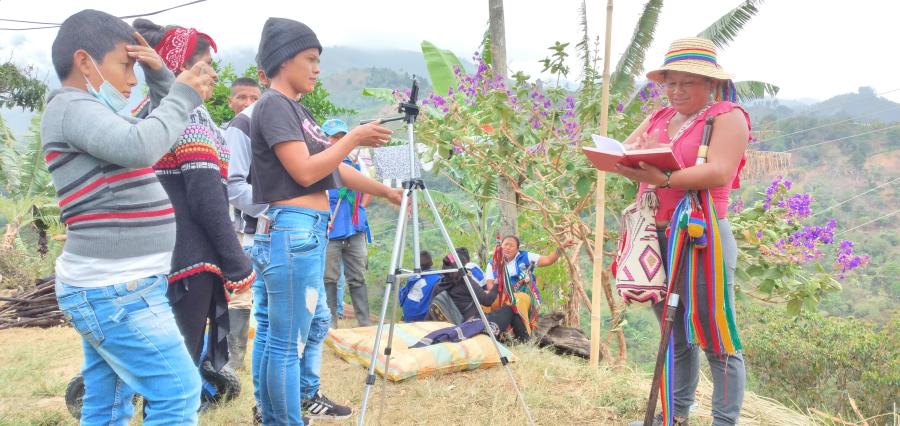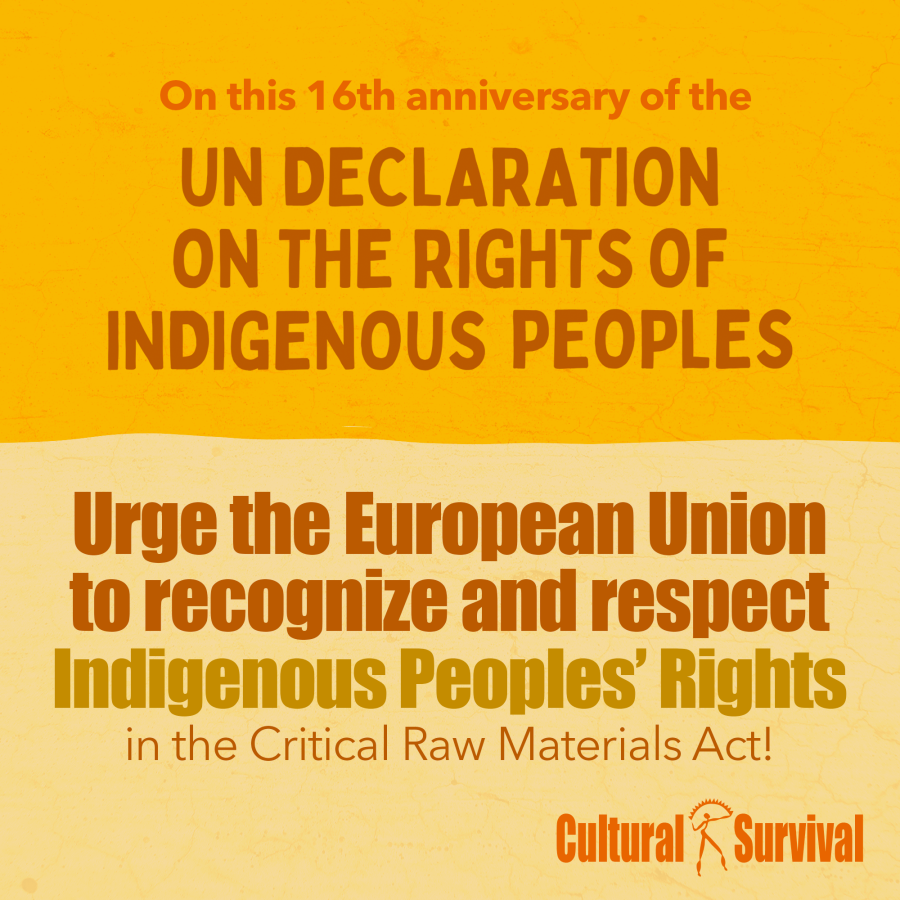The grim news of the Persian Gulf war hangs over us all this winter. One of the many painful lessons we should learn from this conflict is that we ignore human rights abuses at our peril. The West and the United States have known for a long time about the savage regime of Saddam Hussein in Iraq, yet we supported it and armed it to the teeth. The United Nations documented Iraq's use of poison gas against Iran in the Iran-Iraq war and even against its own nationals, the Kurds in the northern provinces. We did not protest but went on aiding the Iraqis. Now Saddam Hussein is using the sophisticated weaponry acquired in the West against American and allied men and women. He may be getting ready to use the poison gas supplied by the West on those same young men and women, whom we may now have to sacrifice because we did not speak out in time.
It is a somber moment for us all, and especially for us here at Cultural Survival, where we try to make the world aware of human rights abuses so that they can be prevented rather than cauterized by war. It is therefore appropriate that in October 1990 Cultural Survival appointed an executive director who comes to our organization after long experience in working for peace and justice.
Pam Solo has considerable experience with Washington, where she worked for Rep. Pat Schroeder and the House Armed Services Committee. She is the founder and until recently the co-director of the Institute for Peace and International Security in Cambridge, Massachusetts. She has been a Radcliffe Scholar, a fellow at Harvard's Kennedy School of Government and at Radcliffe's Bunting Institute, and is currently a MacArthur Fellow. She is the author of From Protest to Policy: Beyond the nuclear Freeze to Common Security.
She joins us to coordinate the activities of Cultural Survival at a moment when the organization is entering a new phase, the third stage in its history. My wife, Pia, and I founded Cultural Survival in 1972 because we had seen how the human rights of indigenous peoples were being trampled in the name of development. We felt that this was both immoral and unnecessary. But if it was unnecessary, then why did it happen, and what was the alternative? Cultural Survival was launched to investigate the abuses, but also to seek and promote viable alternatives. Pia founded the Cultural Survival Newsletter through which we tried to raise awareness of a worldwide problem that has potentially devastating effects for us all.
In the 1980s Cultural Survival entered its second phase, thanks initially to grants from the Ford Foundation and from the US Agency for International Development (AID). Ted Macdonald and Jason Clay joined Cultural Survival as directors. Ted started to put Cultural Survival's precepts into practice through projects to help indigenous people take charge of their own future. Jason built up the organization's membership and transformed the newsletter into Cultural Survival Quarterly, which became the leading journal on development, human rights, and indigenous people. When Mac Chapin and Dominique Irvine joined us as projects directors, we were ready to more into our third phase.
People are deeply concerned about the ways in which we are devastating the environment of our planet. In response to this challenge, Jason has developed a program that will protect the rain forests by finding new markets for sustainably harvested rainforest products. The program will also help the inhabitants of those forests to defend themselves and their ways of life by giving them their own niche in the market economy of the wider world. Meanwhile, Ted, Mac, and Dominique have developed resource management programs that help indigenous people to help themselves, to protect their lands and maintain their cultures.
Cultural Survival's projects have always been backed up by serious research. To strengthen the link between research and action, we founded the Center for Cultural Survival in January 1991 as the research arm of our organization. The center hopes to enlist the aid of scholars worldwide in solving the problems, both technical and political, that minority peoples face. It will also keep in close touch with indigenous and pro-indigenous organizations to enable us to monitor human rights abuses and bring help before it is too late.
Meanwhile we are stepping up our efforts to inform a wider public about these issues, through our publications, through the marketing program, and through a 10-part television series that will air on PBS early in 1992. The series, entitled "Millennium: Tribal Wisdom and the Modern World," was filmed on five continents by Meech-Grant Productions of Toronto in association with Cultural Survival. It will show that tribal peoples have not tried (and failed) to be like us, but have actually chosen different ways of living. By examining these roads not taken, we can perhaps get a better insight into the choices we ourselves make, the price we pay for them, and the possibility of modifying them.
The aim of the series is the aim of Cultural Survival: to encourage a sympathetic understanding of peoples whose lives are quite unlike our own. We live in the company of strangers, not only in the world but increasingly within each nation of the world. It is therefore desperately important that we understand our interconnectedness, with other people and with our environment, and that we learn to live harmoniously with it.
In the 1990s Cultural Survival hopes to advance this cause through research, publication, education, and advocacy - all leading to action. These are ambitious goals, but we are encouraged to pursue them by the public response to our efforts and by the constant stream of volunteers and interns who come to work for us. Cultural Survival started with nothing but volunteers, and it has relied on volunteers ever since to assist its regular staff. They keep coming from colleges all over the United States and even from overseas, young people who are willing to give freely of their time and energy before embarking on their own careers. It is their quality and dedication that gives us hope for the future, not only of Cultural Survival but of the world we seek to build.
Article copyright Cultural Survival, Inc.



